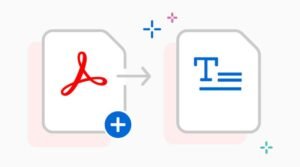10 questions all software developers should be prepared to answer in a job interview

Whether you’re just starting out as a software developer or have been in the industry for years, you should always be prepared to answer some standard questions. They might vary depending on the company and the position, but there are always going to be some overarching questions that you can expect to answer in every interview, whether it’s with your local coffee shop or your dream job at Google. Prepare yourself by familiarizing yourself with the following 10 questions all software developers should be prepared to answer in an interview, and you’ll never again be caught off guard!
Tell me about yourself
When interviewing for a position as a software developer, expect questions about your technical skills and experience. However, you will also likely be asked behavioral questions. Here are 10 behavioral questions you should be prepared to answer when interviewed for a position as a software developer:
- Tell me about yourself?
- What is your greatest strength?
- What is your greatest weakness?
- Describe the situation where you have been most creative at work.
- Describe the most difficult problem that you have solved with creativity at work.
- How do you deal with difficult co-workers or clients?
- Have you ever had any conflicts with co-workers or customers? – How did you handle them?
- What would you say is your key personality trait?
- Can you describe a time when someone did not believe in what you were doing but later became supportive of it?
Where do you see yourself in 5 years?
This is a question that can be difficult to answer, especially if you’re not sure where your career is headed. However, most employers want to see that you’re committed to the company and have long-term goals. Here are five tips for answering this question – Have a long-term goal or 2 in mind
- Keep it positive and show how excited you are about working at the company
- Keep it realistic by pointing out some intermediate steps you would take
- Avoid mentioning things like money or power; focus on what’s important to you
- If an employer asks this question and the 5 year period doesn’t interest you, feel free to decline giving an answer
How would your manager describe you?
When it comes to my work, I am extremely dedicated and always put the needs of my team first. I work hard to find creative solutions to difficult problems and am always looking for ways to improve both my individual performance and that of the team as a whole. My manager would say that I am a strong leader and an asset to any project I am working on.
What’s the biggest programming challenge you’ve faced and how did you overcome it?
One of the biggest programming challenges I ever faced was creating a tool that could automatically generate a website’s sitemap. The client had a very specific idea of what they wanted the sitemap to look like, and it was quite different from anything I had ever done before. But I love a challenge, so I dove right in.
Explain a complex problem you had to solve
One time, I was tasked with solving a problem that had been perplexing my team for weeks. It was a tough one, but I was eventually able to narrow down the root cause and find a workaround. Here’s what I learned from that experience.
- Don’t ever stop working on a problem. Even if you think you’ve found an easy solution, keep digging until you’ve solved it completely.
- Go back to basics if needed–sometimes we can solve problems more easily when we take our minds off of them for a while.
- Keep track of your progress!
What do you think is the future of this field?
There’s no doubt that the field of software development is growing rapidly. With new technologies and tools being developed all the time, it can be hard to keep up. But if you’re prepared for a few key questions, you’ll be ahead of the game. Here are 10 questions all software developers should be prepared to answer in a job interview 1) What is your ideal company culture?
- What are your strengths?
- What would your previous manager say about you?
- What do you like least about programming work?
How do you get things done with an uncooperative manager?
In any work environment, it’s important to be able to take direction from your manager and get things done efficiently. However, there are times when your manager may not be as cooperative as you’d like. Here are a few tips for getting things done with an uncooperative manager -Prioritize – Determining the tasks that will produce the most visible results is crucial. Knowing what results are expected of you can help determine which tasks to tackle first.
-Empathize – Try to understand where your manager is coming from and what their goals might be. Your boss might have different goals than yours, but they’re probably just trying to do their best too!
Tell me about some projects that went wrong
There are bound to be projects that don’t go as planned – that’s just part of the development process. However, being able to talk about what went wrong, and more importantly, what you learned from the experience, shows that you’re able to take responsibility for your work and learn from your mistakes. Here are some examples of questions you might be asked about a project gone wrong 1) What was the original objective?
- What were some obstacles that made it difficult to reach this objective?
- What would you do differently if given another chance?
- What lessons did you learn from this project?
Do you use source control, if so what tool(s)?
If you’re a software developer, chances are you’ve used some form of source control before. But what if you’re asked about it in a job interview? Here are five things to keep in mind.
- Source control is an important tool for any programmer, so expect this question on your next interview.
- Check out our top 10 list of what programmers should know about source control.
- Source code management (SCM) is the process of controlling changes to code and one way to do that is through the use of tools like Git or Subversion.
- Learn more by reading What is Source Control Management?
What are your thoughts on Agile/Scrum/XP processes?
There are a lot of different software development processes out there, and it can be tough to keep them straight. Here are some key points about Agile/Scrum/XP processes that will help you ace your next job interview. Agile software development is an iterative process that helps teams deliver high-quality working products incrementally.
A scrum team is comprised of one product owner, three or more scrum team members (developers), and a scrum master. The role of the product owner is to decide what features the product needs while providing enough information for the developer(s) to get started on implementation.


